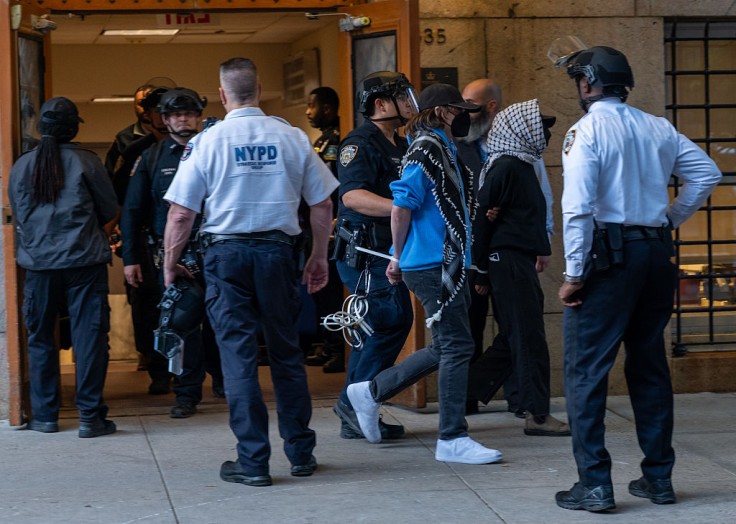Pro-Palestinian Protesters Occupy Columbia University Library, Prompting NYPD Sweep
By
NEW YORK — Dozens of pro-Palestinian demonstrators were arrested Wednesday evening after occupying part of Columbia University's Butler Library, an escalation of campus tensions tied to the Israel-Gaza conflict. The protesters, many wearing masks and kaffiyehs, breached a security gate shortly after 3 p.m. and took over the second floor of the library's main room, renaming it "the Basel Al-Araj Popular University," according to witnesses and the demonstrators' statements.
The occupation, which disrupted students studying for final exams, appeared to be an attempt to reignite the protest movement that gripped Columbia's campus last spring. "Free, free Palestine," and "Free, free, free Palestine," chanted the protesters, with some also shouting, "Let them go, let them go, let them go," as reported by The New York Times. Banners were hung in the library's soaring main room, and clashes with public safety officers ensued.
Columbia's acting president, Claire Shipman, condemned the action, stating, "Disruptions to our academic activities will not be tolerated and are violations of our rules and policies." She added, "Columbia strongly condemns violence on our campus, antisemitism and all forms of hate and discrimination, some of which we witnessed today." Shipman reported that two public safety officers were injured during a crowd surge outside the library as some individuals attempted to force their way in. Several protesters also appeared to have been injured.
The New York Police Department, responding at the university's request, moved in after 7 p.m. to clear the library, arresting more than 70 people, according to a law enforcement official cited by Bloomberg. New York City Mayor Eric Adams, posting on X, emphasized, "While the city will always defend the right to peaceful protest, it will never tolerate lawlessness."
The protest group, Columbia University Apartheid Divest, claimed responsibility for the occupation, stating on social media that it aimed to "The flood shows that as long as Columbia funds and profits from imperialist violence, the people will continue to disrupt Columbia's profits and legitimacy." The action follows months of heightened tensions at Columbia, including the arrests of activists like Mahmoud Khalil and Mohsen Mahdawi, and the Trump administration's cancellation of $400 million in federal funding over allegations of antisemitism.
The university locked down the campus Wednesday, restricting access to students and essential staff. Columbia has faced criticism for its handling of protests, with some faculty and students arguing that administrators have stifled free expression. A university senate report recently suggested that last spring's occupation of Hamilton Hall could have been resolved without police intervention, highlighting ongoing debates over free speech and campus safety.
Wednesday's events have drawn national attention, with Secretary of State Marco Rubio stating he is "reviewing the visa status" of the protesters. The incident underscores the challenges universities face in balancing free speech, student safety, and academic operations amid politically charged demonstrations.
© 2026 University Herald, All rights reserved. Do not reproduce without permission.








